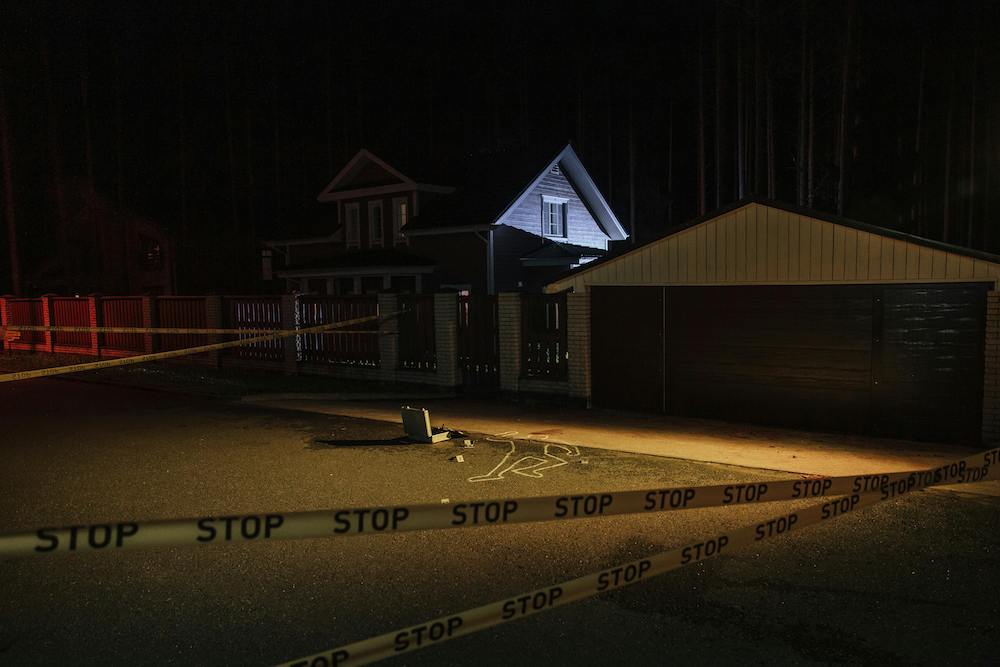Forensic evidence stands as a pivotal tool, often acting as a silent witness that shapes the course of justice. From fingerprint analysis to DNA profiling, forensic evidence carries significant weight in determining guilt or innocence. In the bustling corridors of Toronto’s legal landscape, criminal lawyer Alex De Boyrie, founder of De Boyrie Law, navigates the complexities of forensic evidence with precision and expertise. Join us as we unravel the intricacies of forensic evidence in criminal trials, exploring its usage, challenges, and the quest for a fair defence.
The Power of Forensic Evidence
Forensic evidence encompasses a myriad of scientific techniques and methodologies employed to investigate and establish facts in criminal cases. From the analysis of physical evidence like bloodstains and fibers to digital forensics examining electronic devices, each piece of forensic evidence paints a unique picture of the events in question. In the courtroom, forensic evidence carries a potent aura of objectivity, often swaying the scales of justice with its seemingly irrefutable nature.
Usage in Criminal Trials
In the pursuit of truth, forensic evidence plays a multifaceted role in criminal trials. It serves as a cornerstone for both the prosecution and the defence, offering insights into the circumstances surrounding alleged crimes. Prosecutors rely on forensic evidence to construct a compelling narrative, linking suspects to the scene of the crime through fingerprints, DNA matches, or ballistics analysis. Conversely, defence lawyers like Alex De Boyrie strategically scrutinize forensic evidence, aiming to uncover inconsistencies, errors, or alternative interpretations that could cast doubt on the prosecution’s case.
Challenges and Controversies
Despite its perceived infallibility, forensic evidence is not immune to scrutiny. Challenges abound, ranging from issues of reliability and accuracy to concerns about bias and misinterpretation. The proliferation of forensic techniques and technologies has sparked debates over their validity and admissibility in court. Additionally, instances of human error, contamination, or tampering can undermine the integrity of forensic evidence, leading to miscarriages of justice. In the face of these challenges, criminal lawyers like Alex De Boyrie employ a rigorous approach to challenge forensic evidence, leveraging expert testimony, cross-examination, and scientific scrutiny to safeguard their clients’ rights.
Strategies for Defence
In the realm of criminal defence, strategic maneuvers are paramount when confronting forensic evidence. Alex De Boyrie, with his wealth of experience and expertise, employs a multi-pronged approach to challenge forensic evidence effectively. He collaborates with forensic experts to dissect the methodologies and assumptions underlying forensic analyses, identifying potential weaknesses or inconsistencies. Through meticulous cross-examination, he exposes flaws in the prosecution’s forensic evidence, unraveling the narrative of guilt woven by the prosecution. Moreover, he leverages his in-depth knowledge of legal precedents and case law to argue for the exclusion or limitation of unreliable or prejudicial forensic evidence, ensuring a fair trial for his clients.
Conclusion
In the intricate tapestry of criminal trials, forensic evidence stands as a formidable force, wielding the power to shape destinies and determine fates. As the legal landscape evolves, criminal lawyer Alex De Boyrie remains steadfast in his commitment to defending the rights of his clients, challenging forensic evidence with tenacity and expertise. If you find yourself entangled in the complexities of a criminal case, we urge you to schedule a free consultation with De Boyrie Law. With Alex De Boyrie by your side, you can navigate the labyrinth of forensic evidence with confidence, striving for justice in the face of adversity.
Schedule your free consultation with De Boyrie Law today and embark on the journey towards a fair defence.

Alex De Boyrie is an experienced Criminal Defence Lawyer covering Toronto, and the Greater Toronto Area.
In short, Alex’s experience ranges from working on bail hearings, sexual offences, weapons and firearms, assault charges, drug offences, youth crimes, Impaired Driving, and other criminal offences.

